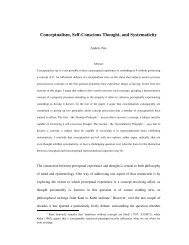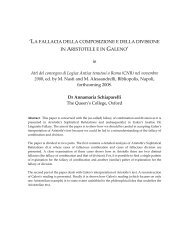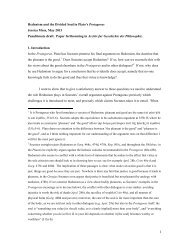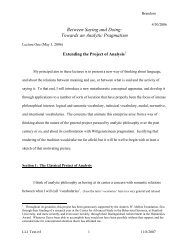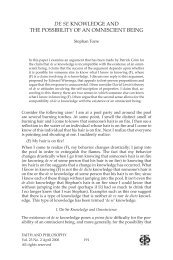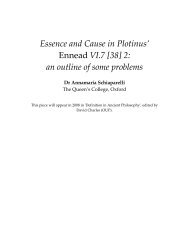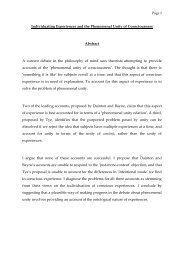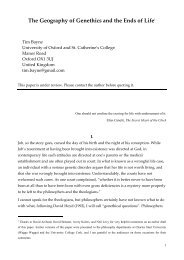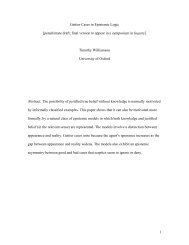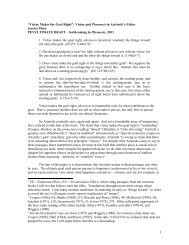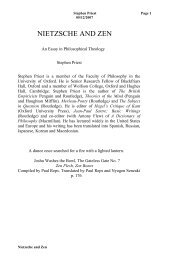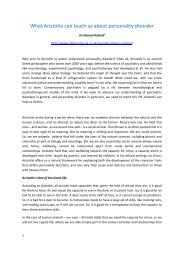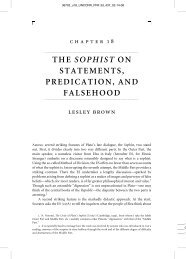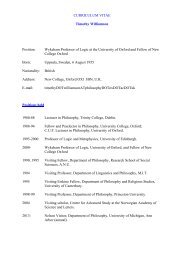Understanding as a Finite Ability Joseph K. Schear Christ Church ...
Understanding as a Finite Ability Joseph K. Schear Christ Church ...
Understanding as a Finite Ability Joseph K. Schear Christ Church ...
Create successful ePaper yourself
Turn your PDF publications into a flip-book with our unique Google optimized e-Paper software.
To appear in Wittgenstein and Heidegger (Routledge, 2013) eds. D. Egan, S. Reynolds, and A.Wendland<br />
le<strong>as</strong>t not integral to understanding <strong>as</strong> such. <strong>Understanding</strong>, Wittgenstein teaches us, is not a<br />
mental state. ii<br />
On a second reading, Wittgenstein’s alternative to Cartesianism does not deny that<br />
understanding is, or at le<strong>as</strong>t can be, a mental state. His remarks on understanding rather amount<br />
to the effort to disabuse us of a mythical conception of mental states. The real problem with the<br />
Cartesian construal, according to this reading, is that the mental state of understanding is pictured<br />
in complete abstraction from its surroundings—for example, the stage-setting of B having<br />
learned algebra, having used such formulae before, and so on (PI §179). It is only in the context<br />
of this cropped picture that the problem arises of how to get a self-contained state to open up into<br />
the fertile ability to go on. However, if we acknowledge the occurrence of a state of<br />
consciousness in which the formula comes before the mind, but we do so in a way which<br />
recognizes its place in a wider context, then we can recover an innocent idea of understanding <strong>as</strong><br />
a determinate mental state. Indeed, the occurrence of the formula, when it does occur, can suffice<br />
to be able to go on. “Now I can go on,” in such a c<strong>as</strong>e, is an expressive signal, but also, at one<br />
and the same time, the self-<strong>as</strong>cription of a determinate mental state. On this reading, if we call<br />
the idea of understanding <strong>as</strong> a mental state a fly, Wittgenstein is letting the fly out of the flybottle.<br />
iii While the second reading may enjoy stronger textual support, it is not clear how much<br />
ultimately hangs on the difference between them. Either way, whether “Now I can go on” is best<br />
understood <strong>as</strong> merely signaling the onset of an ability, or rather, in doing that, expressing (at<br />
le<strong>as</strong>t sometimes) the self-<strong>as</strong>cription of a determinate mental state within the wider context of the<br />
flowering of an ability, the very fact that the text makes both readings available testifies to



